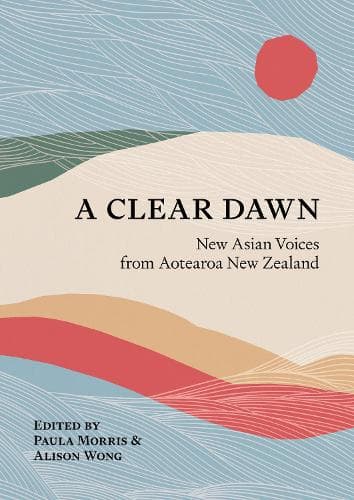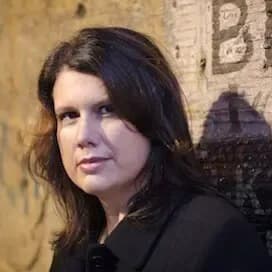
A Clear Dawn: New Asian Voices from Aotearoa New Zealand
by Paula Morris
Find your copy...
A Clear Dawn - the first-ever anthology of Asian New Zealand writing - presents an extraordinary new wave of creative talent. With roots stretching from Indonesia to Japan, from China to the Philippines to the Indian subcontinent, the authors in this anthology range from high school students to retirees, from recent immigrants to writers whose families have lived in New Zealand for generations.
Some of the writers - including Gregory Kan, Sharon Lam, Rose Lu and Chris Tse - have published books; some, like Mustaq Missouri, Aiwa Pooamorn and Gemishka Chetty, are better known for their work in theatre and performance. While for many, A Clear Dawn is their first-ever print publication. The 75 writers explore the full range of human experience: from the rituals of food and family to sexual politics; from issues around displacement and identity to teen suicide and revenge attacks; from political chicanery to social activism to childhood misadventures. Funerals, affairs, accidents, friendships, crimes, jealousy, small victories, devastating losses, transcendent moments: all are here.
With its diverse voices, styles and points of view, A Clear Dawn maps a new literature of Aotearoa New Zealand.
About the Author
'For this anthology, we came together as tangata whenua and tauiwi. Our work here is a karanga that opens up a space for other voices so that many different currents can flow into one meeting place.'
Paula Morris MNZM (Ngati Wai, Ngati Manuhiri, Ngati Whatua) is an award-winning novelist, story writer and essayist from Auckland. Her most recent books are False River (Penguin, 2017), a collection of her essays and stories; and Shining Land (Massey University Press, 2020), a collaboration with photographer Haru Sameshima about the writer Robin Hyde. She is the editor of the Penguin Book of Contemporary New Zealand Short Stories (2009) and a co-editor (with Michelle Elvy and James Norcliffe) of Ko Aotearoa Tatou / We Are New Zealand (Otago University Press, 2020). Paula is an associate professor at the University of Auckland, where she is the director of the Master of Creative Writing.
Alison Wong's family first arrived in Aotearoa New Zealand in 1879 from Zengcheng/Jung Seng, Guangdong, China. Her maternal great-grandfather, Huang Guomin, raised money in New Zealand for the 1911 Revolution, and was called back to China by Sun Yat Sen to be county magistrate. In 1914, her paternal great-grandfather, Huang Weijin, was murdered in Wellington; the case was never solved. Alison grew up in Hawke's Bay and has lived most of her life in Wellington. She spent several years in China in the 1980s and '90s, initially in Xiamen on a New Zealand - China student exchange scholarship, then later in Shanghai. She returned to Hong Kong/China for literary festivals and residencies through the 2010s, and now lives in Geelong, Australia, moving back and forth across the Tasman. Alison's novel, As the Earth Turns Silver (Penguin/Picador, 2009), won the 2010 NZ Post Book Award for Fiction and was shortlisted for the Australian Prime Minister's Literary Awards. It was nominated for the 2011 International IMPAC Dublin Literary Award and in 2018 was selected by Booksellers NZ as one of the top 20 bestsellers of the decade. Alison's poetry collection, Cup (Steele Roberts, 2006) was shortlisted for the Jessie Mackay Award for first book of poetry at the 2007 Montana NZ Book Awards. Her work was selected for Best New Zealand Poems 2015, 2007 and 2006. An NZSA mentor, she was also a poetry judge for the 2018 Ockham NZ Book Awards and in 2020 a consulting editor for the Asian culture site Hainamana.






